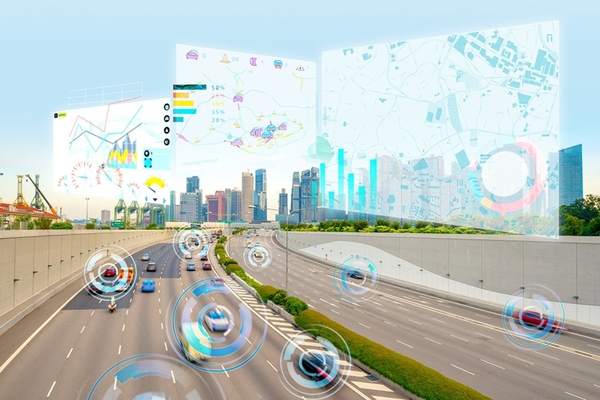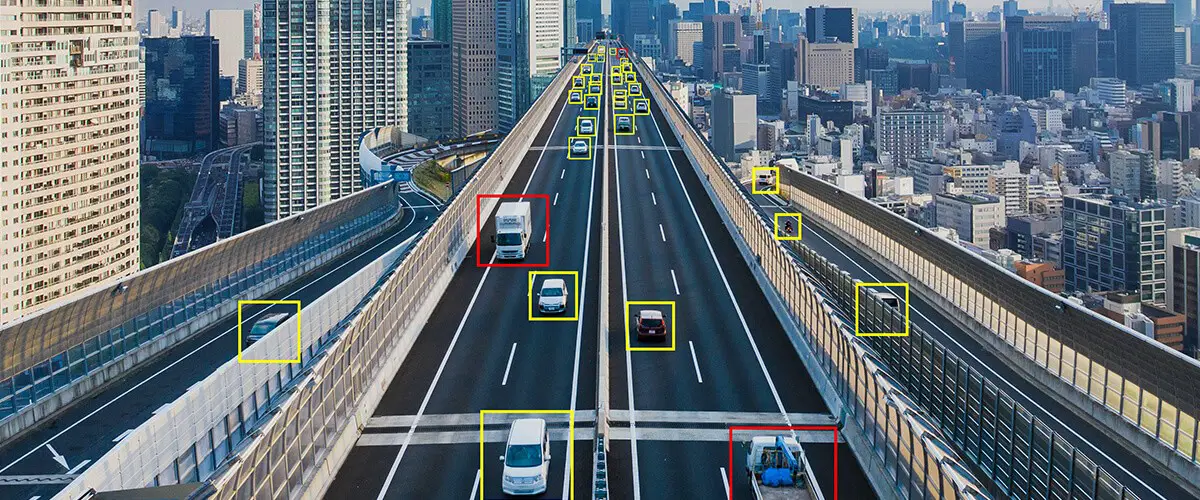Artificial intelligence (ai) can be leveraged to enhance smart city security. By analyzing data from various sources, including iot devices, sensors, and surveillance cameras, ai algorithms can detect and prevent potential security threats in real-time.
Cities are becoming smarter by adopting new technologies and integrating them into their infrastructure. With an increase in the use of iot devices and sensors, data is being generated at an unprecedented rate. This data can be analyzed to improve city services and enhance security.
Ai is playing a crucial role in this process by enabling the automation of monitoring and decision-making tasks, which can improve the speed and accuracy of threat detection. In this article, we will explore how ai is being used to enhance smart city security and the benefits it offers.

Credit: www.smartcitiesworld.net
Key Challenges And Risks Of Ai In Smart City Security:
Leveraging ai for smart city security: key challenges and risks of ai in smart city security
As cities become more and more populated, the need for advanced security measures becomes increasingly difficult to achieve. This is where ai comes in, by providing an innovative solution to increase the effectiveness and efficiency of smart city security processes.
However, ai in smart city security is not without its challenges and risks. In this section, we’ll discuss some of the main concerns and challenges of implementing ai in smart city security and explore ways to mitigate them.
Privacy Concerns Relating To Ai Surveillance Systems
The installation of ai surveillance systems brings up concerns regarding privacy. With the ability to process vast amounts of information in real-time and track citizens’ movements, it’s essential to establish proper privacy protection measures.
- Ensure compliance with privacy regulations and laws, such as data protection laws and the gdpr, and obtain consent from citizens before installation.
- Reduce the amount of personally-identifiable data collected and use anonymization and encryption techniques.
- Implement transparent and accountable surveillance systems to increase trust and reduce concerns about privacy.
The Risk Of Ai Vulnerabilities Getting Exploited By Cyber Criminals
The integration of ai systems in smart city security creates new attack vectors for cybercriminals.
- Conduct vulnerability and risk assessments of ai systems before and after installation.
- Enable secure data storage, data transfer, and data processing through the use of encryption techniques.
- Implement secure authentication mechanisms to reduce the risk of unauthorized access by attackers.
Lack Of Transparency And Accountability In Ai Algorithms
The lack of transparency in decision-making by ai algorithms can lead to distrust, especially in scenarios that affect citizens’ wellbeing, such as security processes.
- Develop transparent ai algorithms that allow the review of the decision-making process.
- Establish clear validation metrics that can verify the accuracy and performance of ai algorithms.
- Involve relevant stakeholders in developing ai algorithms, including citizens, privacy experts, and security experts.
Strict Regulatory Frameworks And Data Protection Practices
Regulatory frameworks and data protection practices constitute the backbone of trustworthy and secure ai systems.
- Ensure compliance with existing regulations, e. G. , gdpr.
- Implement data protection measures, including access control and encryption techniques, to ensure that the confidentiality, integrity, and availability of data are maintained.
- Develop ai systems using ethical and human-centric principles and guidelines.
Developing Robust Ai-Based Security Protocols And Implementation Frameworks
Robust ai-based security protocols must be developed and implemented to ensure the efficiency and effectiveness of security systems and reduce the risk of misconduct.
- Develop sound ai-based threat intelligence and analytics to identify and mitigate potential threats.
- Implement ai-based security systems that are adaptive and proactive in identifying and responding to security incidents.
- Create disaster recovery plans and business continuity strategies that are supported by ai-based systems.
Community Engagement And Public Education Initiatives To Enhance Trust And Transparency
Successful implementation of ai in smart city security will require engaging the community to increase awareness, trust and transparency.
- Develop public education initiatives that help citizens to understand the benefits and risks of ai-based security systems.
- Create platforms that enable community feedback and participation in the development and implementation of ai-based security systems.
- Establish partnerships with relevant stakeholders, including research institutions and industry experts, to foster collaboration and knowledge-sharing.
While the implementation of ai in smart city security presents challenges and risks, the potential benefits are worth considering. By implementing the measures discussed, we can ensure that the integration of ai systems enhances security while protecting the rights and privacy of citizens.
Frequently Asked Questions Of Leveraging Ai For Smart City Security
How Can Ai Improve Smart City Security?
Ai can analyze real-time data, detect anomalies, and identify potential threats to prevent crime and improve emergency response time.
What Are The Benefits Of Implementing Ai For Smart City Security?
The benefits of ai in smart city security include enhanced public safety, reduced crime rates, and improved emergency response times.
How Does Ai Help With Traffic Management In Smart Cities?
Ai can analyze traffic patterns, predict congestion, and provide real-time information to commuters, helping to reduce traffic and improve transportation efficiency.
Can Ai Be Integrated With Existing Security Systems In Smart Cities?
Yes, ai can be integrated with existing security systems in smart cities to enhance their capabilities and improve overall security and safety.
What Are The Ethical Concerns Surrounding The Use Of Ai In Smart City Security?
Ethical concerns include data privacy, biases in ai decision making, and the potential for misuse of ai technology in surveillance and control. Proper regulations and oversight must be implemented.
Conclusion
With the rise of urbanization, adopting ai-led technology for smart city security has become the need of the hour. It has the potential to revolutionize the cities by deploying intelligent surveillance systems, predictive modeling, data analytics, and emergency response mechanisms.
Ai-enabled security solutions offer a 24×7 monitoring of traffic, behavior tracking, face recognition, and real-time alerts that can significantly reduce crime rates and ensure the safety of citizens. Moreover, it saves time, resources, and energy for government bodies. Realizing the potential of ai in smart city security, businesses and governments are investing heavily in research and development to create more advanced solutions.
While the technology is still in its infancy, the future of smart city security holds a promising future by leveraging the power of ai. However, stringent privacy laws and ethical considerations need to be carefully considered to prevent any misuse or abuse of power.


